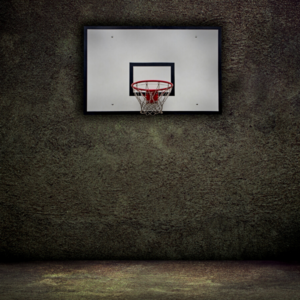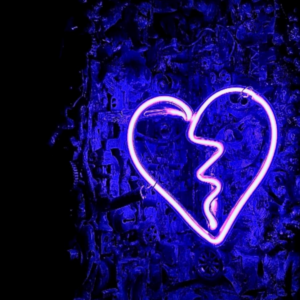“The painting.” The words tumble out my father’s mouth in a slur.
“I—I don’t understand,” I say, forcing the words past the lump in my throat.
Trembles race through his hand then down my spine. He jerks back and pulls me to his face. Cataracts crust along the rims of his rheumy eyes.
“Take care of it.”
He smells of medicine and paper left on an open windowsill in harmattan, caked with dust. There’s another scent too, foul to my senses, pushing my brain to panic, forming pinprick needles behind my eyes, which now brim with tears behind the dam of my will that keeps them from falling.
My father’s eyes go wide, blood vessels constricting, reaching for his cornea. The vibrations stop thrumming in my body and his hands rest in mine, clammy, like a fish without water.
“Nurse!” I scream, twisting my neck with a crick.
She is already upon me, pulling me away from him. My fingers slap the side of my leg and I rub them over my jeans because the vibrations have left him and return to me. They crack out little drum beats against my thighs.
My father’s in-house nurse pushes her hands against his chest, one-two, one-two, one-two. Crunch. His ribs snap like moist twigs. She keeps going. His body is pumped up and down by her thrusts, his hands rising then flopping back to the bed like they are filled with air.
That pungent smell fills the air, wafting to me, driving a line straight to my stomach, trying to create a revolution and force everything up. My heels twist in the opposite direction, propelling me out of the room.
My mind isn’t in control and my feet push me across the hallway, through a small door at the point where the ceiling slants. The smell of turpentine here is just as pungent as the smell of medication in my father’s room. The room is sterile, wooden boxes of paint and brushes lay snapped shut in the corner, most of the paintings that used to be here have either been shipped off to galleries or sold. There’s only one left. Center of the room. Adjacent to the open window, propped on an easel, is the painting.
He started it after the diagnosis that parts of his brain would begin to die off, taking his memory, his movement, and his life. “Something to remember me by.” He said. When he still spoke to me.
I would come home and stand against the doorframe, staring at the tufts of white hair sprouting in odd patches from his scalp as he worked. It was never finished, there was always something more to be done with it, another layer, another shade of color to be added. With each addition, he got more agitated, muttering to himself, and growling at me for disturbing his concentration. The painting was more important than meals and medication—and me.
Even as he died, it was the only thing on his mind.
It was born a self-portrait, but over time it accrued layers, watercolor on pastel on acrylic. Now it is a wild mosaic of colors slashed into the canvas, jockeying for space, intercutting one another in ways that warp my vision.
I pull a canvas bag from behind the door and march towards the painting. It sits on the easel like it’s been glued, refusing to budge as I try to lift it. My hand grazes the canvas surface, it feels mulchy, turbulent, the paint swirls around my fingers. Color flashes up my hand. It feels warm like I’ve dipped it into a bucket of paint. I try to yank my hand free but the paint resists, snaking around me and pulling to the canvas.
I open my eyes in the studio, not as it was a minute ago, but as it used to be, before the diagnosis. Counters and the table at the center splashed with paint tubes, brushes, and stained palettes. Paintings line the wall, stretching without end.
The painting closest to me is a watercolor, paint swirling on the canvas, twisting itself into shapes of eight-year-old me, bursting into a pool. I hear the splash in my head as globules of blue watercolor reach out of the painting and then retract. I remember this day, it was the first time my father decided I was old enough to dive from the high board.
The next is a slowly moving oil painting of a woman, rocking a blot of brown swaddled in pink. My mother. Her features are painstakingly rendered, realistic as the photographs I remember her from.
Next to it, is a pastel of my father and me—me in a black racerback, gold medal glowing against it, my head recently freed from the swim cap in my hand and angled to rest on my father’s shoulder. I hear his gruff voice in my ear just as it was that day when I won the regional swim meet, whispering, “I’m proud of you, short stuff.” Then my insistent mumbling that I was of average height.
The dam breaks and tears stream down my cheeks, hot and salty. I move further down the studio. There are paintings of my father with me, old friends, my mother, his parents. There are places too, the squat plexiglass gallery he sold his first painting to, the first apartment we lived in, older art studios. It is an art exhibit of his memories, snatched from his mind before the disease could take them and rendered the only way he knew how.
Hands shake me, and I lift my head, tears moist on the side of my face and arm. I turn to face the nurse, her eyes are red and heavy.
“We lost him,” she says. “I’m sorry.”
I look up at the painting. “Perhaps not.”




